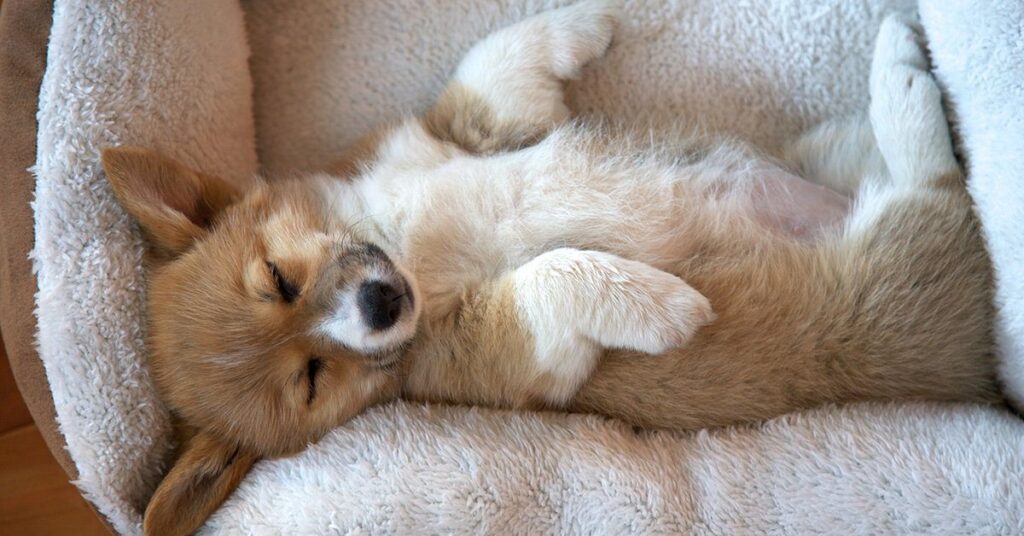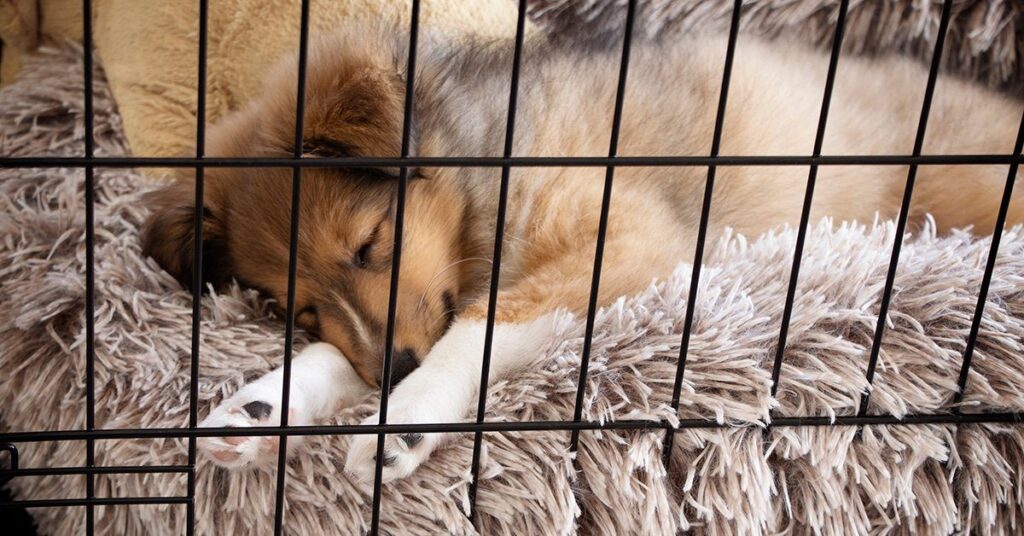How much do puppies sleep?
Newborn puppies come into their world totally dependent on their mothers. They’re basically blind, deaf, and have very little control over their muscle movement. They spend about 90% of their time sleeping and the other 10% nursing, amounting to about 22 hours per day of sleep. Lucky pups!
As they grow, puppies sleep less and explore their world more. Your dog’s breed, age, diet, and activity level will also play roles in their sleep needs, but here’s a typical overview:
8 weeks – A puppy will sleep about 20 hours per day.
10-12 weeks – A puppy will sleep about 18-20 hours per day.
14-16 weeks – A puppy will sleep about 18 hours per day.
16-18 weeks – This is a critical time in your pup’s development. It’s a critical time for them to learn their feeding schedule, socialization, and basic training to name a few. To get their new routines and behaviors to stick, they require a lot of sleep.
Older dogs and puppies will settle into 12-14 hours of sleep per day. Here’s a helpful dog age chart, if you’re curious where your dog lands.
Puppies spread their naps out throughout the day and night into 30-minute to two-hour naps. Very young pups will nap at a higher frequency, often every hour. As they grow, frequency of nap time will dwindle.
Dogs are polyphasic sleepers, which means they nap or sleep for short periods throughout the day and night. As dogs age, they become diurnal sleepers, which means they sleep for longer periods during the darker parts of the day, with naps and activity happening during daylight hours.
Humans are monophasic sleepers, meaning we sleep during the night, and night alone.
Large dog breeds will tire quickly because they grow much faster than small dog breeds and require more sleep to build those bones and muscles properly. They also require dog food specifically made for large breeds to nourish those fast-growing bodies.

Sample puppy sleep schedule
Here’s a simple sleep schedule to get you started. Keep in mind, every puppy is different, so keeping a sleep diary of when your puppy’s sleeping cycles happen will help you adjust to their needs.
Morning:
Naptime
Afternoon
Lunch
Naptime
Evening
Quiet time
Bedtime
During the early weeks with your puppy, have patience. There is so much to learn about you and their new world. As time passes, your puppy will sleep through the night. We promise!

These are the typical sleeping habits of a healthy puppy
Your new puppy is a real ball of energy. He can sometimes seem like a never-ending source of energetic excitement, but then it happens: Your pup gets all tuckered out and can sleep for what seems like hours, even in the middle of the day. What’s a healthy sleep schedule for a growing pup anyway?